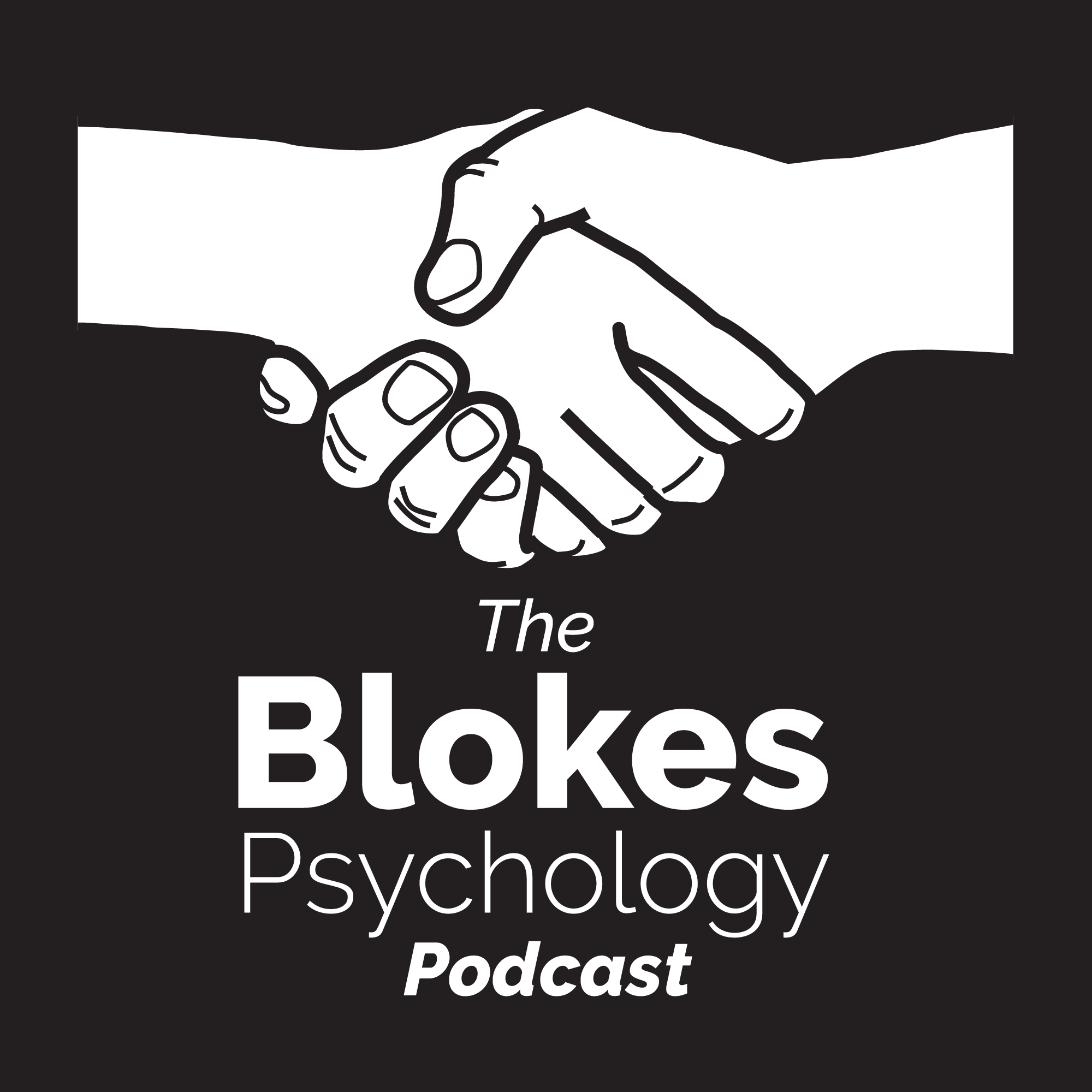Self-Diagnosis via AI: The Hidden Dangers You Might Be Ignoring
As artificial intelligence (AI) tools become more accessible, it’s no surprise that many Australians are turning to platforms like ChatGPT or Google’s Gemini to explore mental health symptoms. Just type in a few concerns, and within seconds, you’re presented with a clinical-sounding “diagnosis” and a list of possible conditions.
Fast, convenient, accessible.
But here’s the issue: AI isn’t your therapist. Data is generated from a variety of online sources based on a broad group of people. Using AI as your support system might therefore be doing more harm than good.
Our team at Blokes Psychology has seen a growing number of men arrive in therapy feeling more confused than ever, many having already “diagnosed” themselves using AI as their first step on the journey. While technology can be a valuable resource for education and awareness, self-diagnosis via AI carries serious risks that are often overlooked.
The Illusion of Accuracy: Why AI Can Get a Mental Health Assessment in Australia Wrong
At face value, AI tools like ChatGPT can sound incredibly confident, explaining symptoms and referencing psychological terms with ease. But what many people don’t realise is that AI can “hallucinate” (a term used in tech to describe when the system invents information that simply isn’t true, yet presents it as fact).
In reality, AI doesn't "know" anything. It predicts likely word combinations based on statistical patterns in text, generating responses that may sound accurate but lack any clinical basis. When it comes to mental health, where nuance, history, and emotional context matter - false information can be incredibly dangerous.
“Just because an AI tool can string together professional-sounding sentences doesn’t mean it understands what’s going on in your mind.”
No Context, No Care: The Dangers of AI Diagnosis Without Professional Mental Health Support
The core limitation of AI is that it doesn’t know you.
- It doesn’t see your non-verbal cues.
- It can’t hear the tone in your voice.
- It doesn’t ask follow-up questions.
- And it certainly doesn’t understand your life context.
Even if you enter a detailed summary of your feelings, AI can’t assess risk factors like suicidal ideation, substance use, or trauma history, which are critical to any real psychological diagnosis.
AI lacks clinical judgment and cannot perform crisis intervention or safety assessments.
Generic Advice Does Not Equal Personalised Care
AI mental health tools often provide blanket advice, like “practice mindfulness” or “talk to someone you trust”, which can be helpful, but not actionable when you’re in distress. Worse, it might mislead you into thinking your situation isn’t serious, encouraging delay in seeking professional support.
This is especially true for Australian men, many of whom are already conditioned to bottle things up or “push through.” If AI tells you what you’re feeling is just “stress” when it’s actually clinical depression or burnout, you could go months without proper help.
The Appeal of Quick Answers with AI Mental Health Tools in a Stigma-Filled Culture
Let’s be honest: seeking mental health support is still hard for many Aussie blokes. There’s stigma, fear of judgment, and the pressure to be “self-reliant.”
So, when AI offers a non-confrontational, private solution, it’s easy to see the appeal.
But there’s a big problem with this: a quick answer isn’t the same as healing.
Relying on AI might give you momentary clarity, but it doesn’t address underlying issues like emotional regulation, unresolved trauma, relationship difficulties, or patterns of self-sabotage. Real therapy does.
The Risk of AI-Generated Misinformation and Identity Confusion
Self-diagnosing with AI can also lead to unnecessary or inaccurate labels. You might read one paragraph about ADHD or Autism and suddenly feel convinced that you have it, without any formal assessment or professional insight.
This type of self-labelling can:
- Increase anxiety
- Create self-fulfilling behaviours
- Strain relationships
- Delay real diagnosis and treatment
Mental health diagnoses are complex. Only a qualified mental health professional can distinguish between overlapping conditions, rule out physical health issues, and recommend appropriate treatment.
Real Consequences: When Misdiagnosis Leads to Harm
Self-diagnosing via AI might seem harmless…until it isn’t.
Let’s unpack what can happen when men take AI-generated advice at face value without professional input:
- A man reads an AI-generated blog and concludes he has anxiety. Without checking in with a clinician, he starts self-medicating with alcohol to “relax.” What he doesn’t realise is that alcohol can worsen symptoms of anxiety and depression, fuelling a dangerous cycle of avoidance.
- Another man believes he’s just burned out. He reads generic tips online provided by a mental health chatbot with clear limitations, pushes through with caffeine and minimal rest, ignoring clear signs of major depressive disorder. By the time he seeks help, his relationships, physical health, and work performance have all taken a hit.
- Someone else stumbles on a post about trauma and PTSD. Intrigued, he begins re-living past events, convinced he’s making progress. But without a safe therapeutic space, he’s re-traumatising himself and spiralling into panic, confusion, or shutdown.
These aren’t extreme hypotheticals. These are patterns mental health professionals see regularly, especially among men who feel unsure or hesitant about seeking help.
When AI presents information without nuance or context, it gives people the illusion of understanding, while leaving critical pieces out of the conversation. A diagnosis is never just a label. It informs how you treat something, how you view yourself, and how others support you. When you get it wrong, the consequences can range from stagnation to serious harm.
7. What an ADHD or Mental Health Assessment Really Looks Like
If you’ve read something via AI and wonder if it applies to you, that’s okay. But don’t stop there. Instead, consider a clinical mental health assessment, especially for conditions like ADHD, depression, anxiety, or stress management.
A professional assessment includes:
- A full clinical history
- Discussion around family background and lifestyle
- Psychological questionnaires and evidence-based tools
- Evaluation of symptoms across multiple areas of your life
- Ruling out physical health contributors
At Blokes Psychology, we provide comprehensive assessments and diagnostics tailored to men. Unlike AI, we understand how these conditions manifest in real life and how they can uniquely affect men.
Clinical Assessment vs AI: Why Real Therapy Will Always Matter
There’s no doubt that AI has made mental health content more accessible. It’s fast, it’s available 24/7, and it can help you feel seen. But it’s not a substitute for therapy and it never will be.
Here’s why working with a real therapist still matters:
- Genuine Human Connection: Therapy gives you more than information; it gives you a relationship. A space where you’re heard, challenged, supported, and respected.
- Tailored, Personalised Strategies: No two men have the same upbringing, personality, or mental health journey. Therapy meets you where you are and develops strategies that fit your life, not generic one-size-fits-all advice.
- Clinical Risk & Accountability: Therapists are trained to spot red flags (suicidality, substance use, trauma, and more) and respond safely. AI can’t intervene when things escalate.
- Trauma-Informed Practice: Reprocessing trauma is delicate. A psychologist knows how to pace the work, use grounding tools, and hold space for distress without pushing you too far, too fast.
- Ongoing Progress and Support: Change takes time. Therapy gives you a roadmap, not just an answer, and someone to walk that path with you.
At Blokes Psychology, we understand how tempting it is to look for fast answers online. But if you’ve been relying on AI to manage your mental health, it might be time to go deeper. Our team of experienced male psychologists helps men across Australia gain clarity, emotional strength, and healthier habits, with real clinical insight and genuine support.
If something’s been bothering you, you don’t need to diagnose it alone. You just need someone to talk to. We’re here when you’re ready.
When to Go Beyond AI Reach Out for Mental Health Support
If you’ve been Googling symptoms or using AI tools to figure out what’s going on mentally or emotionally, that’s okay; it means you’re self-aware and proactive.
But don’t stop there.
You might benefit from speaking to a Blokes Psychologist if:
- You’re feeling stuck or confused after reading AI-generated advice
- You’ve self-diagnosed but aren’t sure what to do next
- You want a real diagnosis or ADHD assessment
- You’re ready for tailored, ongoing support, not just quick answers
Ready to stop guessing and start healing? Book a session with a Blokes Psychology therapist today.





